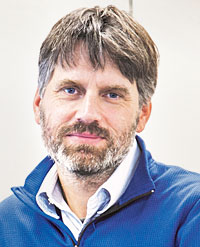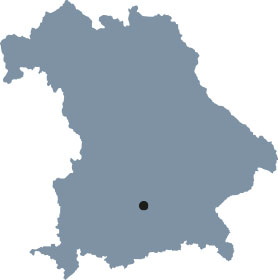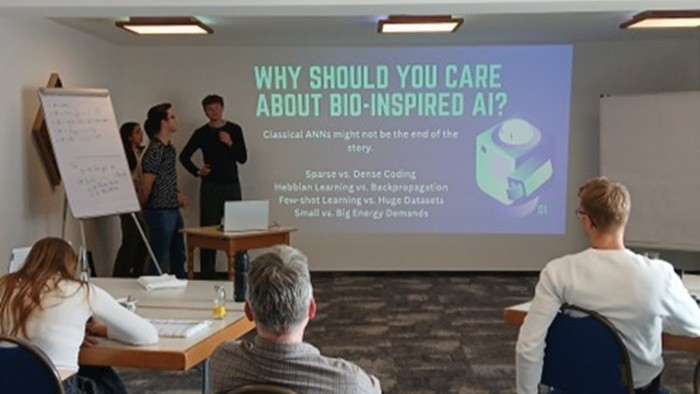Biomedical Neuroscience
The study program “Biomedical Neuroscience” offers a research-oriented education in the field of neuroscience as well as in neuropsychiatric diseases. Teaching of theoretical knowledge and practical skills is performed using innovative teaching methods. A personalized mentoring program ensures intensive supervision of the students. Through exchange programs, for example with the Hebrew University in Jerusalem the students can gain international experience.
| Degree | Master of Science |
| Duration of study | Four semesters |
| Place of study | Munich |
| Admission requirements | Bachelor's degree or equivalent in the field of natural science, such as biology, chemistry, molecular medicine, physics or medical state examination. |
| Course language | English |
| Application deadline | May 31st |
| Begin of studies | Winter semester |
| Head | Prof. Dr. Pascal Berberat, Prof. Dr. Arthur Konnerth, Prof. Dr. Thomas Misgeld |
| Coordinator | Diana Lee Würmseer Contact the coordinator |
| Further information | Website Biomedical Neuroscience |
The program offers unique research-oriented training opportunities in biomedical neuroscience to a small group of selected students holding a bachelor´s or equivalent degree in the field of natural science. This includes both theoretical background and technical skills for commonly used experimental approaches in basic and clinical neuroscience research.
Teaching is conducted in a combination of theory and hands-on classes imparting in-depth understanding of brain function and structure, from molecules and cells to large-scale circuits, behavior and the mechanisms and treatment strategies of neuro-psychiatric diseases.
During research internships students of the Elite Graduate Program "Biomedical Neuroscience" are integrated in ongoing research projects of partner institutes, one of which is the “SyNergy” Cluster of Excellence.
An additional special focus is the learning of key skills such as data analysis, scientific ethics and research communication.


We believe that future success in translational neuroscience research will depend on a new generation of researchers that have received a solid training in the field of basic neuroscience, as well as in the integrative principles of brain diseases.
Prof. Dr. Thomas Misgeld
Individual supervision and early internationalization
Based on the interdisciplinary training the program offers students the possibility to focus on their individual research interests within their lab internships. Students will be assigned to personal mentors who will guide and support their academic progress with regard to their personal interests, as well as career prospects. They will be ideal candidates for the numerous PhD-programs offered in this field. Furthermore, pharmaceutical and biotech industry have a high demand for graduates with an in-depth understanding of basic as well as translational neuroscience.




